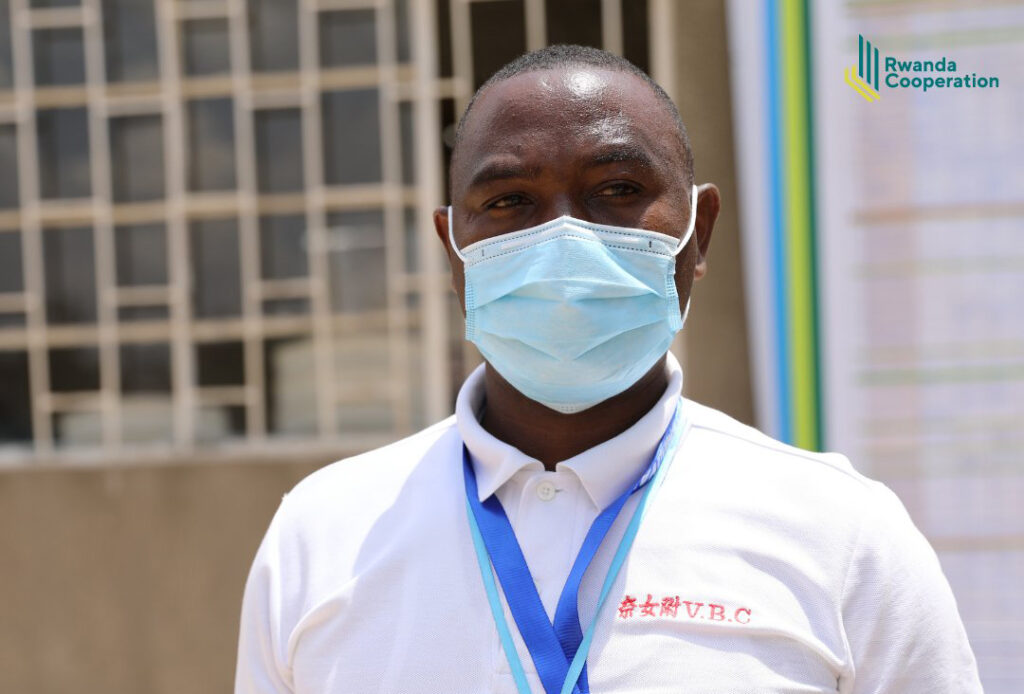ADF STAFF
Acclaimed for its inventive measures to combat the COVID-19 pandemic such as the use of robots, thermal cameras, drones and disease-sniffing dogs, Rwanda has offered a blueprint for handling outbreaks.
The country’s latest innovation to save lives and relieve stress on hospitals is called Operation Save the Neighbor, an initiative that integrates doctors into home-based care teams. Through the program, the locations of patients and doctors are mapped out so that doctors and community health workers can treat patients within walking distance.
“When you are a medical professional and there is a health emergency in your community, it is your responsibility to be part of the solution,” Dr. Emile Rwamasirabo, a urological surgeon participating in the program, said on the World Health organization’s (WHO) website.
Within two weeks of the operation’s launch this year, the share of home-based treatment increased from 30% to 92%. Because more than 80% of home-based patients had their oxygen saturation monitored regularly, the number of COVID-19 deaths decreased, officials said.
The program was launched in the Gasabo District, the epicenter of a severe COVID-19 outbreak in early 2022, with more than 2,500 cases reported in 501 villages. The approach eased the burden on community health workers, each of whom may be assigned up to 100 patients.
“As community health workers, our knowledge and skills are limited, and the population is aware of that,” Rutagarama Wendislas, lead community health worker in Kigali’s Gisozi Sector, said on the WHO website. “Knowing we can just pick up the phone and ring a doctor for support has boosted our confidence and created trust among the population.”
In one severe case, Wendislas said doctors were helpful in quickly analyzing information he provided and realized the patient’s condition could turn critical.
“It really felt like we were a team,” Wendislas said.
The approach is working so well that by the end of March, 98% of COVID-19 patients in Rwanda were treated in homes, according to the WHO.
“The greatest asset of Rwanda’s health system is its people and an innovative spirit,” Dr. Brian Chirombo, WHO representative in Rwanda, said on the organization’s website. “We hope that Operation Save the Neighbor will be replicated elsewhere, even beyond crisis times.”
Nepo Kwizera has been a community health worker in the Gasabo District since 2002. Kwizera said he has seen tremendous gains in training and access to basic medical supplies. In his early days as a community health worker, Kwizera said the best way he could gauge whether a person had a fever was to put the back of his hand on their forehead.
“Today is a different story,” Kwizera told Rwanda Cooperation, a government-run program that promotes and shares innovative development initiatives. “We, and the younger generation of community health workers, are trained properly, our skills and knowledge constantly updated. We have the equipment necessary to offer basic treatment to our patients.”
Thanks to strict enforcement of preventive measures, Rwanda has experienced a steep decline in new COVID-19 cases since the omicron-driven fourth wave peaked in December 2021, when a seven-day positivity rate was about 10%. By April 2022, the rate was 0.02%.
Rwanda lifted its nationwide curfew, allowed workplaces to return to full capacity and opened all land borders in March 2022.

